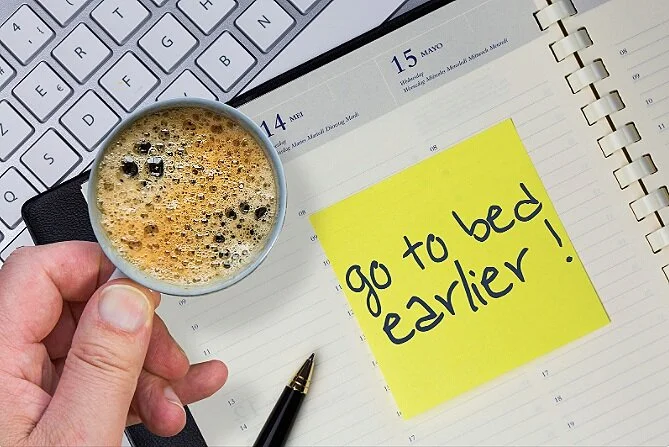How is Your Sleep?
We all know we need at least 8 hours of sleep to operate at our best. However, for some of us achieving that goal is difficult. Sleep, just like any other skill, can be learned and improved. Here are some tips to help you improve the quality of your sleep so you improve your performance throughout the day.
Keep your room quiet and dark. Use earplugs to cut noise. Keep out light with window blinds, heavy curtains, or an eye mask. Move any electronic devices out of your bedroom, or turn them off. Even the LED or LCD lights on TVs, tablets, and music players in your bedroom can hamper sleep. Don't turn on bright lights if you need to get up at night; use a small night-light instead.
Avoid large meals within 2 hours of bedtime. If you are hungry, try a glass of milk. A natural chemical in milk, L-tryptophan, may help you sleep.
Time your sleep right. Go to bed at about the same time every night. Try not to nap late in the afternoon. If you do nap, keep it short, just 10 to 15 minutes. A good time to nap is about 8 hours after you wake up.
Calm down before bedtime. Stop working on any task an hour before bedtime, especially those that include computers and devices. Try to keep your mind off worries or things that upset you once you're in your bedroom. Avoid talking about emotional issues in bed.
Leave Fido and Fluffy out of the bedroom. If your pet moves around on your bed, you may wake up. Pets also can affect sleep if they contribute to any allergies you have.
Keep your cool. A good temperature for sleep is above 54 degrees Farenheit but below 75 degrees.
Save your bedroom for sex and sleep only. You might want to do other tasks in the bedroom, especially if you can't sleep. Instead, go into another room and read a book until you feel sleepy. (especially since many of us have been working from home now).
Practice relaxing. Flexing your muscles, imagining a calming scene, or meditating can help you unwind and get ready to sleep.
Don't smoke. Nicotine is a stimulant, which can keep you up. So reaching for a cigarette near bedtime or in the middle of the night can ruin sleep.
Stop having caffeine 4-6 hours before bed. That includes coffee, cola, tea, and chocolate, and some over-the-counter medications, too. Cut back on caffeine gradually to help prevent headaches.
No nightcaps. Alcohol may make you feel sleepy, but it doesn't make for a good night's sleep. As your body processes the alcohol, you may wake up more easily. When metabolizing alcohol it warms the body up and warmer bed temperatures keep us up.
The best tip I can offer for improved sleep: TAKE THE CLOCK OUT OF THE ROOM.
We have all been here before. Staring at the clock saying if I go to bed now I will get 4 hours of sleep. If I go to bed now 3...2...etc. This stresses us out and makes it harder to sleep. Set an alarm for when you need to get up and trust that with time and consistency your body will learn naturally when it needs to go to sleep and when it needs to wake up.
Try these tips out and see how they can improve the quality of those ZZZZ!

